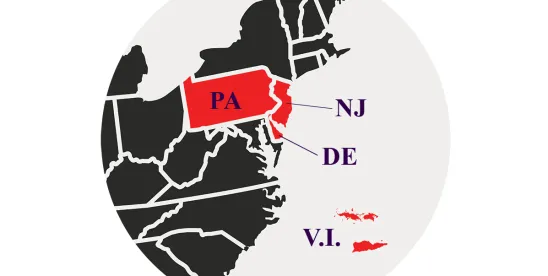A recent case filed in the United States District Court for the Eastern District of Pennsylvania, Lipinski and Taboola v. North-East Deck & Steel Supply, Civ Action No. 5:25-cv-1467, should remind all contractors and sub-contractors working on public works projects funded by federal or state funds of the potential for significant liability for failing to pay required prevailing wages and improperly handling wage and hour issues. The plaintiffs, two crane operators, filed suit on behalf of themselves and a class of employees against their employer, claiming that the employer misclassified workers to avoid paying premium wage rates. They also claimed that their employer paid the fringe benefit portion of their wages as though they were independent contractors, thereby avoiding paying the employer’s portion of payroll taxes. The complaint alleges as well that employees were not compensated for time spent performing pre-shift safety inspections in violation of the Fair Labor Standards Act, 29 USC §201 et seq.
Many public works contracts are funded, in whole or in part, by federal, state, or local funds. These projects could be subject to federal of state prevailing wage laws, such as the federal Davis-Bacon Act or, as in the case noted above, a state statute like the Pennsylvania Prevailing Wage Act, 43 P.S. § 165-1, et seq. These prevailing wage statutes generally require employers to properly classify employees according to the actual work they are performing and to pay the prevailing wage rates and fringe benefits for those classifications.
Some state statutes, like the Pennsylvania Prevailing Wage Act, provide for the aggrieved employee or group of employees to file their own lawsuits to seek redress for underpayments. They can seek liquidated damages, as well as attorneys’ fees and interest, using class action complaints. Also, while the federal Davis Bacon Act does not provide a similar direct right to institute a lawsuit, employees can file claims with the Department of Labor, or employees can bring claims under the False Claims Act for an employer’s falsification of certified payroll reports in some cases. Creative plaintiffs have also asserted claims for breach of contract or failure to pay all wages due under a state wage and hour law.
All of this means that employers who work on publicly funded projects must pay particular attention to employee classification and pay issues. Given that an employer can potentially be liable for significant damages, including backpay, penalties, pre-judgment interest, reasonable attorneys’ fees and costs, it is critical to properly classify workers to ensure that they are paid required prevailing wages under federal or state law. In addition, any employer classifying workers as independent contractors should closely examine the nature of the work performed. Finally, employers must be careful to timely pay employees for all compensable work they perform on the project and to submit accurate certified payroll reports reflecting such payments.




 />i
/>i

